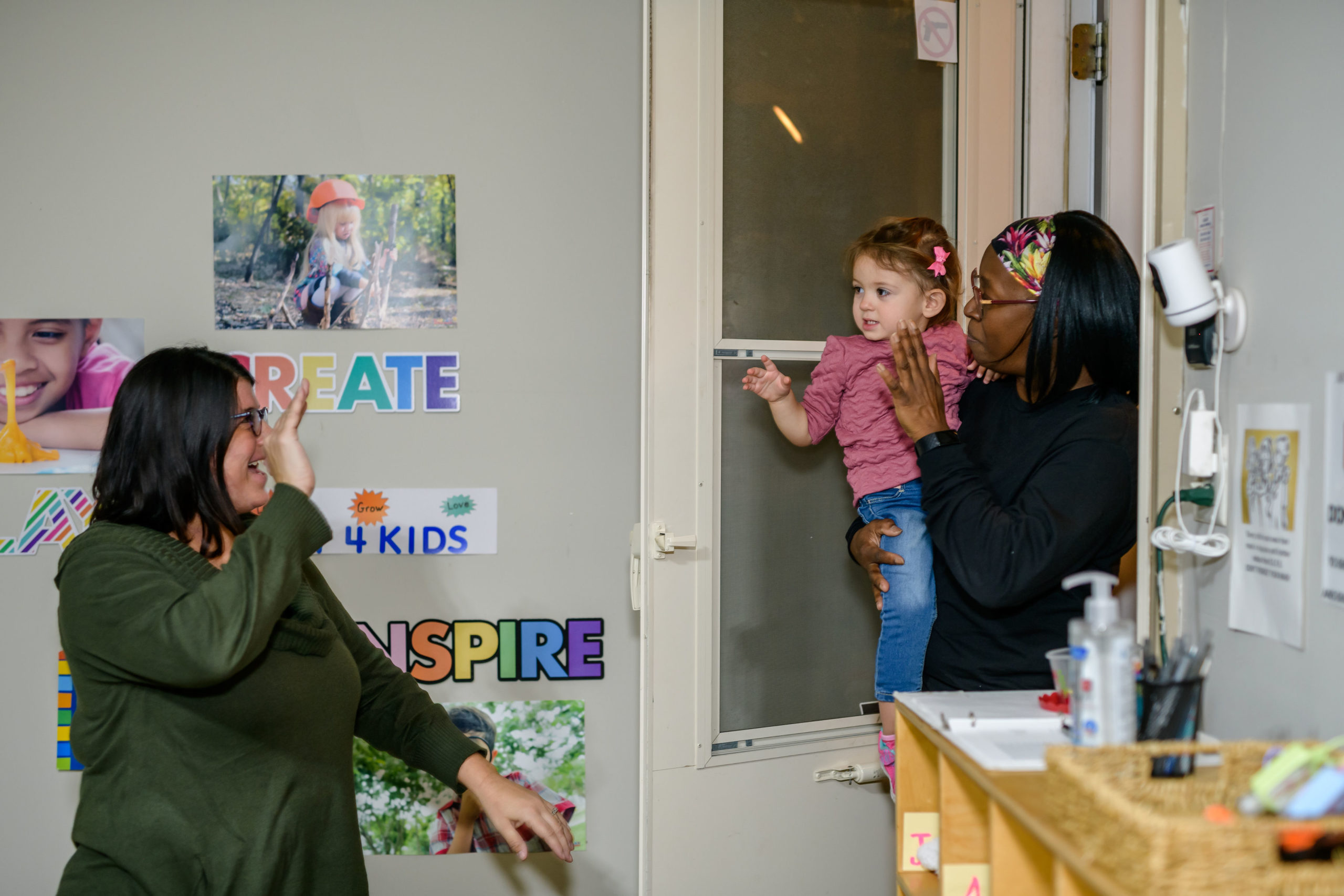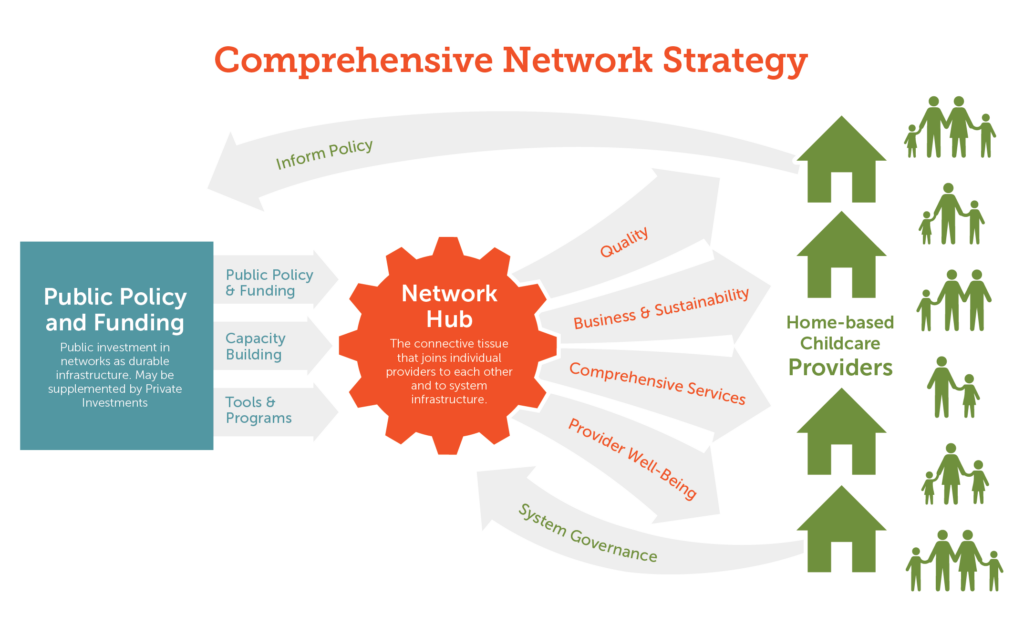Once a family child care provider is licensed, they are left out of the business world without any support. We need to have a coaching or mentoring system that guides and directs providers to be successful.
Nancy Cordero
The COVID-19 pandemic illuminated the need for child care as infrastructure. As families juggled work, job loss, and distance learning, all while taking care of children, we’ve seen something grow in America: the reliance on, respect for, and recognition of home-based child care (HBCC). Yet HBCC remains woefully under-resourced.
Now as federal relief dollars begin to flow to the states and additional legislation is on the horizon, our country has the resources to build lasting infrastructure in the form of comprehensive networks to support HBCC providers and the families they serve.
Once a family child care provider is licensed, they are left out of the business world without any support. We need to have a coaching or mentoring system that guides and directs providers to be successful.
Networks can provide retirement plans and business classes for family child care (FCC) owners and prospective owners. I would also love some resources about how to advocate for regulation changes at the local level to ensure that providers are represented.
Things we need from networks that support HBCC are resources we can offer our families, such as free screenings for vision, hearing, dental, etc. We also need resources that can be provided to us as providers that give us medical, dental, mental health services for free or reduced rates.

Offer high-quality child development services
Be financially sustainable and offer continuous care (as individuals or small businesses)
Connect children, families and providers to comprehensive services that improve their mental, physical, social and economic well being

In Home Grown’s vision, comprehensive networks may take many forms, such as staffed family child care networks, child care resource & referral agencies, shared service alliances, associations, and more. Regardless of the entity type, comprehensive networks are durable infrastructure that are positioned to tackle the big issues facing our home-based child care sector: quality; building supply and retaining existing high quality operators; and connecting providers and families to additional services. Read more about comprehensive networks in Home Grown’s publication, Home-Based Child Care Networks: Making Connections to Make a Difference.
Literature and briefs on some of the existing network models and supports for home-based child care providers.
QUALITY CARE FOR CHILDREN is a child care resource and referral (CCR&R) agency in Georgia with a comprehensive approach that involves working directly with children, parents, and child care providers. Their programs include training for providers around quality and business supports, including the Provider Resource Hub and on-site consultation visits for providers, as well as child care food program sponsorship and child care management software.
La Red Latina de Educación Temprana “La Red” is a community-led model that works to eliminate systemic barriers for Friend, Family, and Neighbor (FFN) childcare providers by providing early childhood quality care trainings, educational opportunities, and leadership development to its members. It uses cultural and community strengths of Latino families and childcare providers to address inequities faced by our community in the Twin Cities region.
